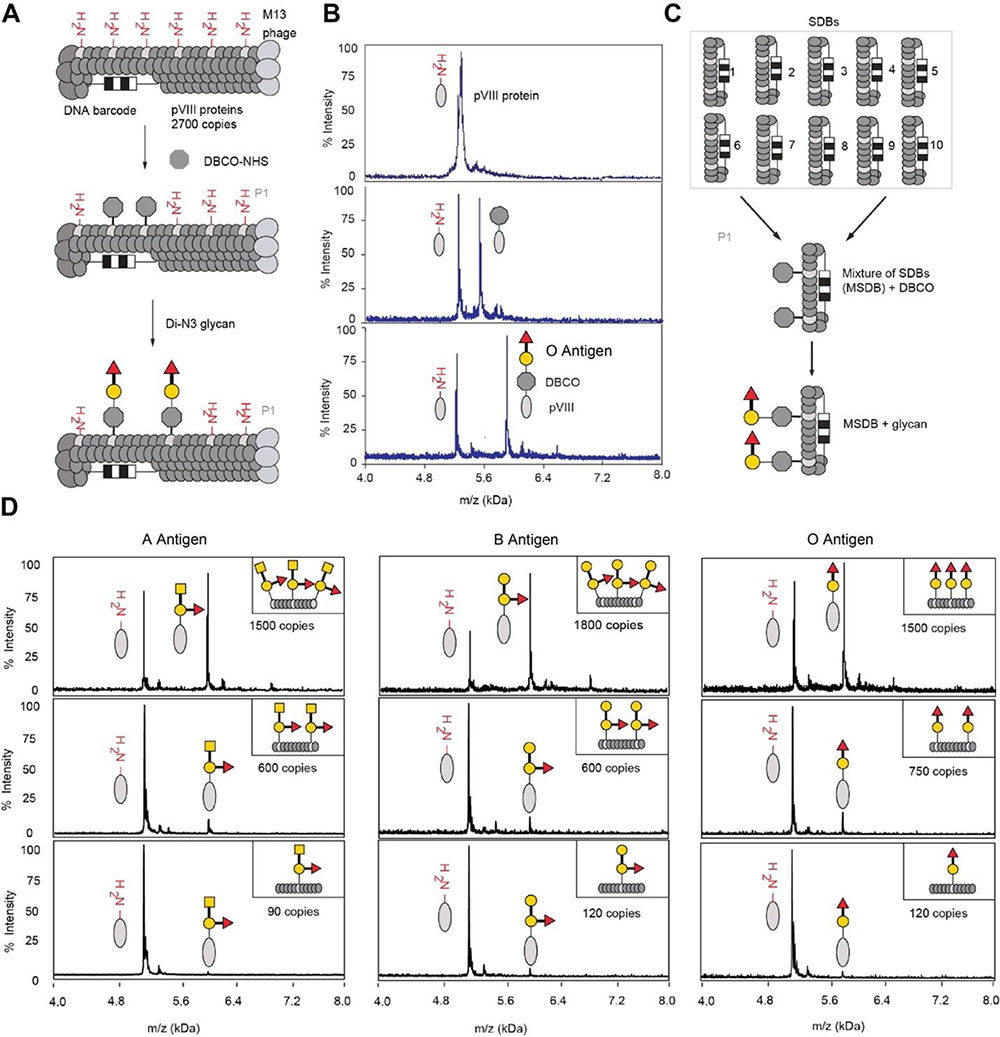
 中央研究院 生物化學研究所
中央研究院 生物化學研究所
We test the performance of the multiplexed liquid glycan array (LiGA) technology in serological assays. Specifically, we use LiGA to detect ABO blood group antibodies in human serum. This LiGA, which we name ABO-LiGA, contains ABO blood group trisaccharide glycans with an ethylazido aglycone conjugated to groups of ten multi-barcoded M13 particles carrying dibenzocyclooctyne (DBCO) on p8 proteins. ELISA clonal binding assays to anti-A/B antibodies confirmed the functional performance of ABO-clones and aligned with next-generation sequencing (NGS) of the mixed clones. Multiple DNA-barcoded technical replicates in LiGA allow for quantification of reproducibility and robustness as determined by the Z'-score using NGS. We then tested ABO-LiGA for specific detection of IgG and IgM anti-A and anti-B IgG and IgM antibodies in human serum samples. Comparison of antibody binding responses in sera from 31 healthy donors to ABO-LiGA with an ABO-Luminex-based method revealed consistent responses to LiGA-ABO but also minor deficiencies of ABO-LiGA such as low robustness of the current assay format and a limited ability to detect low intensity antibody responses. Some results point to undesired interactions of serum antibodies with small-footprint glycans conjugated to phage via the bulky DBCO moiety. This report illuminates the path for future development of LiGA-based serological assays and suggests the need to develop alternative methods for conjugating glycans to phage to avoid liabilities of the hydrophobic DBCO moiety.
